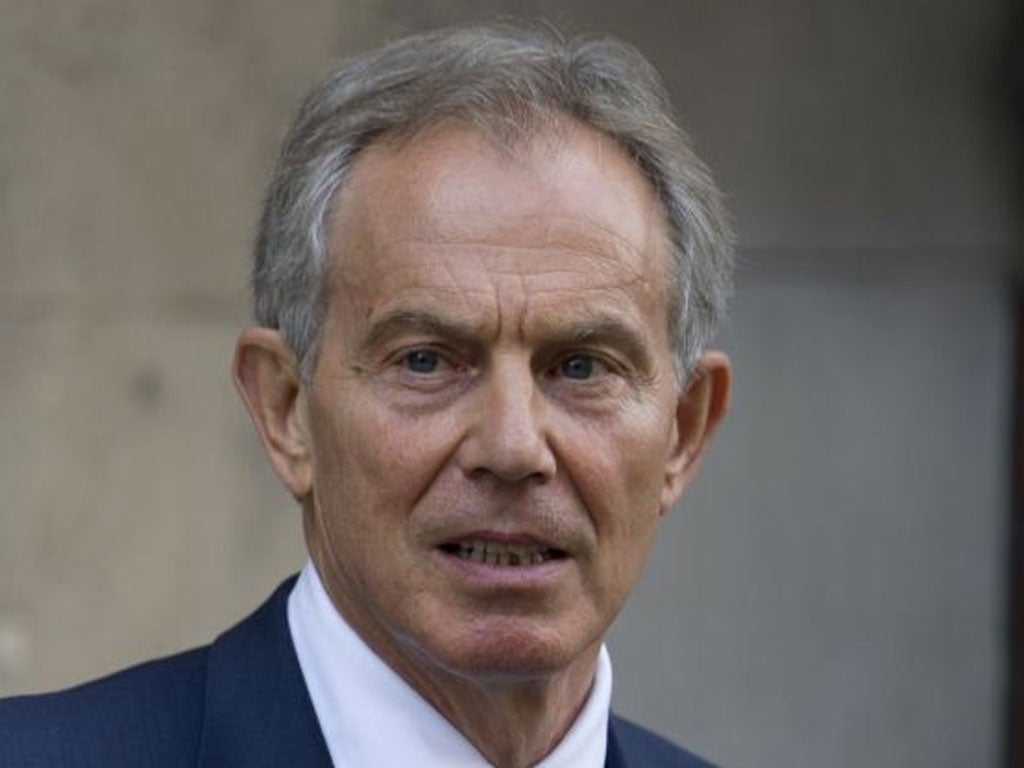Tony Blair: Iraq is not reason public is against Syria intervention
Former Labour leader says that US-led actions following invasion is what turned Britain against further involvement in Middle East

Tony Blair has come under fire after claiming that the invasion of Iraq has not made the United Kingdom “hesitant” to intervene in Syria.
The former Prime Minister insisted it was the American-led actions in Iraq in the aftermath of the 2003 war, rather than the US-UK invasion, which turned British public opinion against another intervention.
“It is an issue to do with the difficulty we encounter afterwards, and that is a really really important lesson,” he told a BBC Radio 4 programme on Syria to be broadcast on Monday. ”The truth is, the reason why Iraq makes us hesitant is because Iraq showed that when you intervene in the circumstances, where you have this radical Islamist issue, both on the Shia [Muslim] side and the Sunni side, you are going to face a very difficult, tough conflict.“
He insisted that Syria is different from Iraq because “in respect of Syria, there isn’t a serious doubt because we have the physical evidence of the civilians dying. That’s not what’s making people hesitant.”
Mr Blair said he “disagreed” with Ed Miliband for defeating David Cameron in the Commons over the prospect of UK military action in Syria. A Labour source rejected Mr Blair's analysis, saying the lesson Mr Miliband had learned from Iraq was the importance of avoiding an "ill-judged and reckless rush to war".
John Prescott, who was Deputy Prime Minister under Mr Blair, hit back at his former ally. He said: "I've always respected Tony Blair but he's wrong on Syria and Ed is right. Tony seems to have become a champion for regime change."
But Ben Bradshaw, the Blairite former Labour Cabinet minister, urged Mr Miliband to think again. He told Radio 4’s World at One programme that ruling out action against Syria is not a “very comfortable position” and many Labour MPs “feel very uneasy about where we are.”
Sir Menzies Campbell, the former Liberal Democrat leader, who opposed the Iraq war, also questioned Mr Blair's claim. He said: “The military action was justified on the basis that Saddam Hussein possessed weapons of mass destruction which were a danger to the UK, which was just plain wrong. Second, that the war against Saddam Hussein was illegal and contrary to the UN charter. Third, that the intelligence presented to Parliament and public was couched in such a way as to fit our policy decision already taken wholly contrary to principle.”
This week a ComRes survey for The Independent found that 62 per cent of people agree that “the experience of the Iraq war means that Britain should keep out of any military conflicts in the Middle East for the foreseeable future,” while 31 per cent disagree.
Join our commenting forum
Join thought-provoking conversations, follow other Independent readers and see their replies
Comments
Bookmark popover
Removed from bookmarks